Beginner’s Guide to Cryptocurrencies / Blockchain, Wallets & Exchanges
Beginner’s Guide to Cryptocurrencies / Blockchain, Wallets & Exchanges
Written in simply and understandable terms here is a brief guide to Cryptocurrencies, Blockchain Technology, as well as other things such as some coins and tokens, wallets, exchanges, pricing and charting tools, and basic security tips.
Contents:
- What is a cryptocurrency?
- What is Blockchain technology?
- Coins & Tokens
- Cryptocurrency Exchanges
- Wallets (and Security Tips)
- Pricing & Charting Tools
- Glossaries and Online Resources
1. What is a cryptocurrency?
Image source
A cryptocurrency is a kind of currency (money or asset) that is in digital form which is encrypted in order to make it safe and (mostly) private for use in transactions (such as for payments or transfers to others).
Cryptocurrencies are primarily held in what we call digital wallets (think of a wallet as a personal secure account).
Note that sometimes we use the terms token or coin which pretty much means the same thing as a cryptocurrency. Also, it is common to refer to cryptocurrencies as “cryptos”.
Examples of popular cryptocurrencies include: Bitcoin, Litecoin, Dash, Monero, and Zcash, but to name a few. To see a list of the top 100 crypto currencies you can have a look at https://coinmarketcap.com/.
Characteristics of cryptocurrencies:
Unlike other forms of digital money (like bank deposits, credit cards, PayPal, WeChat Pay, etc.) they are more secure because of encryption. Encryption simply means that all your data (account data, funds in wallet, and transactions) is encoded (disguised) in an unreadable format to other parties. Benefit to you: This means that the chance of getting your funds stolen are much smaller. In addition, you enjoy more privacy over your wealth as funds and transactions are safely encrypted.
They are usually kept by you the user in a wallet instead of in a centralized place such as in a bank account. The coins or tokens in your wallet are always encrypted (this is usually done with what we call a key pair: public key and private key - the public key is usually shared with others so you can receive funds, and your private key is not shared with anyone and is used to encrypt funds to hold in your wallet). Benefit to you: Whereas funds in your bank account are not entirely in your control, cryptos held in your wallet are totally in your control. Moreover, if a bank goes bankrupt, you can lose all your funds but this is nearly impossible in your wallet (unless it is hacked).
They are not under the control of a Bank, Central Bank or Government. There are two main problems with storing your money in a bank account: first, the bank only holds a fraction of deposits (usually less than 10%, but in reality it is closer to 1 or 2%) as the rest is lent out to other parties; and secondly, the money in your bank account actually does not belong to you but it belongs to the bank – you are merely an unsecured creditor (read the terms of agreement of your bank account). In short, if there is a financial crisis banks can rather easily become insolvent or bankrupt, as the actual depositors’ cash stored in their vaults is insufficient to supply all depositors should they wish to withdraw their funds; so your funds – your hard earned cash and savings – can be at great risk of loss. To make matters worse, a lot of Western nations have what we call bank bail-in legislation which means that in the event of a banking crisis, they will be legally allowed to simply take funds from your account to keep the bank afloat. Furthermore, a bank charges you a lot in fees. Benefit to you: You have full control of your funds and nobody can confiscate them from you, nor tell you what you can and cannot use them for. It’s none of their damn business! When you hold funds in a digital wallet, you usually do not incur any fees and you hold 100% of your funds at all times.
Their supply is (most often) limited and strictly accounted for on a distributed ledger (this is like a big accounting book that tracks every single transaction a coin or token is used in which also makes sure there is no duplication of coins like may happen with counterfeiting) which is more commonly referred to as the blockchain (more on blockchain technology below).The limited supply feature of cryptocurrencies is a very important one. Whereas governments and central banks always simply “print” more and more units of currency (such as dollars, Euros, etc.) which decreases their value and purchasing power (this is called inflation) cryptocurrencies were designed to be in strict limited supply and thus prevent these kinds of abuses. Benefit to you: This means that your cryptocurrency will not be devalued due to an increase in its supply and thus will maintain its level of purchasing power over the long term (assuming a relatively stable value for the cryptocurrency you hold, of course).
Most cryptocurrencies (and blockchain technologies) are what we call open source projects. This means that it is a group of (usually really talented) people who program the code that enable these technologies to function (think “code” like your Microsoft Windows operating system or Microsoft Word software application). “Open”code simply means that the programmers make the code available for all to see online so that it can be checked by others ensuring that it is not programmed to do harm, steal funds, or do something malicious like hacking or spying. The code is usually continuously improved upon with suggestions from other talented programmers. Benefit to you: This means that, with (mostly) open source coded cryptos and blockchains, you needn’t worry about the CIA, NSA, IRS, Google, Facebook (or any other agency or corporation) secretly and deceptively looking into your private matters and personal affairs, nor be susceptible to hackers, computer viruses, spyware, and similar malicious attacks.
Disadvantages: Even with high levels of encryption and security, cryptos can still be subject to theft; but this is mostly if you are not careful with securing your coins/tokens properly in your wallet(s). Some cryptos, especially poor quality and highly speculative ones, can lose a lot of their value, or even become worthless. As cryptocurrencies & blockchain (and related/similar) technologies are still in their infancy (they’ve mostly started around 2007 with Bitcoin) there will be some “bugs” and security issues for sure; but, such issues are usually addressed quickly due to their open source nature.
Cryptos can be used to:
Store a portion of one’s wealth in a secure and private location (wallet).
Buy goods and services online. At the moment, you can’t buy as many things online as you could with a credit card or PayPal. And there are many reasons for this such as those traditional models/players (like traditional banks and governments) putting pressure to ban the use of cryptos. Happily, however, we are seeing more and more online merchants accept cryptos and even some government services can now be paid using cryptos. As the technology evolves and becomes more mainstream, their adoption and acceptance as payment for goods and services will inevitably grow fast and wide over the years to come.
Send funds or pay other parties in a much faster and cost-effective way. Currently, with banks if you want to send funds to somebody elsewhere in the world it can take days and cost a lot in fees and also in time (you need to go to the bank, wait in line, fill-in forms, etc.). But with cryptos this can be done in a matter of seconds or minutes and at a much lower cost. Some transaction fees are a bit high at the moment, but as the industry evolves and more competition comes into the space, these fees will decrease a lot and will be a hell of a lot cheaper than those charged by banks, credit card companies, Western Union, PayPal, etc.
Invest and speculate. Many people are into cryptos (and related technologies) because they see value in them (much like stock investors see value in the companies they purchase shares in). While such investments can be risky and speculative, those who do their due diligence and research can reap some nice rewards.
Trade into other cryptocurrencies or even regular fiat currencies (such as dollars, Euros, etc.) as well as gold, silver, and other commodities.
2. What is Blockchain technology?
Image source
A blockchain is an incorruptible decentralized public ledger that permanently records transactions (such as a cryptocurrency purchase or sale) as blocks on a long string (chain) of data.
- incorruptible: the data is unchangeable, apart from new blocks being appended (added) to it.
- decentralized: it is not stored in a central location, but rather in multiple (usually hundreds or thousands) places across the internet (i.e., exact copies of the same ledger/blockchain in all locations). The idea here is that it is nearly impossible to hack or change, as the wrongdoer would have to change all the copies in existence.
- public: anyone can see it and all transactions are visible (transaction data includes things such as dates and times, to and from addresses, amounts, confirmations, etc.)
- ledger: an electronic book of transaction data.
- permanently: inerasable (unlike a paper document/contract that can be shredded, burned, or destroyed).
Blockchain technology refers to the definition above + many other aspects such as: a protocol (for transmission of data and verifying & validating transactions), decentralized applications, smart contracts, and more.
- protocol: Think of “protocol” like http (yes the http:// you type before entering website addresses like http://steemit.com). http, or Hypertext Transfer Protocol, is the one used for the World Wide Web (to properly display web pages with text, images, hyperlinks, etc.)
- decentralized application: this is simply coded programs in similar fashion to those apps on your smartphone; they include things such as games, wallets, payment systems, voting systems, basically anything.
- smart contract: an agreement between parties defined by set rules and conditions that are impervious to outside forces (such as bribery, corruption, fraud, censorship, or third party interference).
Ethereum, Bitshares and EOS are examples of platforms on which decentralized applications, commonly called dApps, are created and put into use.
I would like to add one final note for this section (blockchain technology) and the previous one (cryptocurrency). These technologies combined have been initiated with a larger vision in mind: creating a society with real freedom, liberty, true democratic systems, accountability, decentralization, and fairness for all. To this end, most developments and advancements in this new field work to promote these values. Now that governments and the banking sector, in particular, are quite scared of it (as it would take away a lot of their power, control, and profits) we can already witness that they are taking strong measures to stop it. Yet, as they recognize that this new paradigm shift is unstoppable, they will surely attempt to introduce their own centralized versions of a blockchain (or similar technology) and cryptocurrency. My advice is to be vigilant about this, as any such centralized system would most likely be and could entrap citizens in a beast like system. So just keep your guard up about this in the years to come.
3. Coins & Tokens

Coins usually refer to units of cryptocurrencies themselves; they usually have a distinct name, unique technology and features (such as privacy for instance) underlying them, a development team or organization behind them, a ticker symbol (such as BTC for Bitcoin), and an associated trading price.
A token is similar to a coin, but it can simply be a unit of an asset on a particular platform which holds value and is tradable. For example, on the Ethereum platform, there is a token called ether (ticker symbol ETH). Many other tokens also are used and traded on the Ethereum platform and take the form of an “ERC20 token” (the standard used on their platform).
Members of an organization (often a team of programmers and entrepreneurs) usually conceive a project in which there will be either a coin or token. Then, they will produce a “white paper” (which explains what problem their project solves or what its value proposition is), and then conduct an ICO (Initial Coin Offering) whereby they issue a certain number of coin/token units for sale in order to raise funds for their endeavor. These units are usually then made available on cryptocurrency exchanges.
There are literally hundreds (if not thousands) of coins and tokens available. Most of them are listed on https://coinmarketcap.com/. While there are many quality coins and tokens the majority of them, sadly, are not of particularly good quality (i.e., they are either not well conceived, constructed, or managed) but rather act as speculative plays; these are usually referred to as “Shitcoins”. Therefore, you should do your own research and due diligence before investing in or adopting a particular coin or token. For this, it is good to take some time and:
- research the premise or value proposition of the coin/token (have a look at their website, read their white paper; read online articles and reviews; watch related videos, and ask around);
- have a look at their development team (do they have smart capable developers/programmers, marketers, successful prior projects, substantial backing - financial and otherwise?);
- conduct some fundamental and technical analysis of the coin/token (if you know how to do this).
4. Cryptocurrency Exchanges

Cryptocurrency exchanges are where you can buy, sell, or exchange specific coins or tokens. They can be centralized (such as Coinbase.com) or decentralized (such as Bitshares.org) and vary in terms utility, which coins/tokens are supported, user interface, account requirements, fees, limits, funding mechanisms (such as linking a bank account to it, using credit cards for purchases), and privacy.
Important: The general rule of thumb here is that is better for you to choose a decentralized exchange rather than a centralized one since the latter can encounter problems such as being shut down by the government or regulator, being hacked, having funds, wallet and personal information stolen. Actually, you may not even need to find an exchange to fund a wallet and get started trading cryptos, as there are easier and better ways to do so.
Also very important: The main idea of cryptocurrency and blockchain technology is privacy. So, use this as a general mindset from the start! All you really need is a way to get your initial cash into the “system” and once this is done the rest will be relatively smooth sailing.
All you need to do really is:
1. Determine which coin/token (or platform) you wish to put your cash in.
2. Open a wallet that supports that coin or token you wish to purchase/hold/trade.
3. Fund that wallet with cash.
Although there are different ways to do this, the best (easiest, fastest, and most private) way to do this is by locating a Bitcoin (or Bitcoin Cash or Ethereum) ATM machine. Such ATM machines can be located through an internet search to see if there is one in your town or city; for this, first have a look at Bitcoin ATM Map to locate which ones are available in your region. At the moment there only/mostly seem to exist ATMs that support either of these three coins. That means that, initially, you will have to purchase either Bitcoin (BTC), Bitcoin Cash (BCH), or Ethereum (ETH) using currency notes of your country. But don’t worry if you don’t like these coins, as they are merely entry points for you to get your cash into the cryptosphere. Once your cash is in a wallet (that supports one of these coins) you can then easily trade it for your desired coin/currency. While I won’t get too much into details on how to do this in this post, I will point you in the right direction for wallets and exchanges that will help you do this (wallets in the next section below, and exchange services hereunder).
4. Trade/exchange for the cryptos you want.
Here you can use exchange services/portals such as https://shapeshift.io which permit you to exchange one type of coin/token for another. There are other exchange services besides shapeshift, but I find this one to be quite easy and effective to use; so let me keep it simple and simply recommend that you use this one.
Generally speaking, all you need to do in these kinds of exchange portals is to specify the quantity (deposit/send amount) of coin/token you already have (with the public key address of your wallet) and the quantity (receive amount) of the new coin/token you wish to exchange it for along with the location of the receiving wallet (also with a public key address). Transactions usually take a few minutes (shouldn’t be more than 30 minutes) to complete. It’s pretty much as simple as that!
5. Wallets (and Security Tips)

I will recommend three wallets that are quite robust and fairly easy to use: Blockchain.info Wallet, Exodus (desktop) Wallet, and MyEhterWallet (which is mostly for holding Ethereum).
Important Note of Caution: Before downloading any of these wallets, make sure you are doing so from the correct/authentic location, as if you are not you could be exposing yourself to harmful software that could compromise your wallet(s) and thus your funds therein. Always double check the addresses (https://) from which you are downloading these to make sure they are from official sites and sources. Always be vigilant.
Blockchain.info Wallet
This one is great for getting your cash into the cryptosphere. It can hold Bitcoin, Bitcoin Cash, and Ether (Ethereum) which are the ones for which you can initially purchase via an ATM machine (see information above in this post). Once you’ve obtained either of these three coins you will be able to easily exchange (send) them for others (but usually destined into another wallet such as Exodus which is explained next).
This wallet is available as either a “Web wallet” (i.e., viewed on your computer via a web browser) or a smartphone app wallet. For the “Web Wallet” go to https://blockchain.info/wallet/#/signup
Main dashboard for Blockchain.info web-based wallet
Sample Send Ether (funds) for Blockchain.info web-based wallet
And for the smartphone app go to either Google Play or 1Mobile Market.
The smartphone version is probably easiest to use but it poses some risks (depending on your smartphone habits). I personally prefer to use the web wallet instead. But both are very simple, easy, and convenient to use.
Blockchain smartphone wallet – Request for payment (reception) of funds in Ether (you would use this QR code to point to the ATM machine for which you’d insert your cash bills into to fund your Blockchain wallet).
Exodus (desktop) Wallet
This wallet is super simple to download and install and has a very simple and easy to understand user interface which displays your overall portfolio of coins/tokens, the specific amounts and dollar value for each, and so on.
Simply go to their download page at https://www.exodus.io/releases/ and choose the desired computer platform that you use (either Windows, Mac, or Linux), download the file and install it on your computer. Once installed on your computer, you are ready to receive cryptos in it.
Exodus desktop wallet – Portfolio holdings (main screen)
Exodus desktop wallet – example of trading one kind of crypto for another
Very very important: Note that in Exodus, once you have received funds in your desktop wallet, you should perform a Backup; for this, it is pretty straightforward as all you need to do is simply follow the instructions carefully.
MyEhterWallet
MyEtherWallet (https://www.myetherwallet.com/) is a very popular wallet to hold Ether (the token for Ethereum) which has many safety features and several options on how you would like to manage your wallet (e.g., via a hardware wallet, private key, secure keystore file, etc.). Although it you can’t exchange your Ether for many other types of coins/tokens as you would with the Exodus wallet, it is good for sending and receiving Ether.
Security Tips
As you would take precautions with your own regular money, you should do the same with your cryptos. Owning a digital wallet and using online and smartphone services or desktop software to buy, sell, and exchange cryptos requires some basic diligence and caution. Here are some basic tips you should keep in mind and always put into practice, as to ensure your funds don’t get stolen and you don’t lose key information or data that would deny you access to your wallet.
Passwords:
For any crypto related app, wallet, or account, you will need to choose secure passwords. To do so, consider the following:
Choose passwords that are at least 15 characters in length, but preferably 20 or more.
Use a combination of alphabetic characters (a to z) + digits (0 to 9) + special characters (such as !@#$%&*).
For alphabetic characters use both lowercase and UPPERCASE characters in your password string.
Never use dictionary words or family names, pet names, birth dates, and the like.
Always carefully (clearly) write down your password on paper and you can also do so in a .txt file (but don’t store it on your computer but rather on a USB key you keep safe).
Never share your password with others.
Wallet tips:
When installing or setting up your wallet, be sure to carefully follow the recommended tips.
Never share your Private Key with anyone.
You may be asked to create a “Wallet Recover Phrase” which asks you to write down 12 words (both the Blockchain and Exodus wallets from above use this safety feature) which can be asked of you in the future should you need to recover you wallet (possibly following you losing your password, getting your computer stolen, getting a computer virus, or the like). Be sure to write these 12 words down carefully and double-check them. If you also write them in a .txt file, I suggest you do not keep that file on your computer but rather on a USB key that you can keep in a safe location.
If you are using a wallet with a web browser (such as Blockchain.info for example) always double-check the URL in the address bar (which should start with https) to ensure you are going to log into the correct website/location. Here is an image showing this:

Notice that there is also a name associated with this URL which is “Blockchain Luxembourg S.A.R.L. (LU)” – should you see something else written there, it could be a scam site; so be careful. Basically, just make it a habit to always have a quick look at the address bar to ensure you are in the legitimate website.
General tips:
Avoid installing wallets or making crypto transactions in public areas where there is a WIFI network connection, as the transmission of information from your computer or smartphone is usually unencrypted and thus possibly subject to hackers who can save all your passwords and steal your cryptos. Do all this in a secure location such as in your home.
When you make buy, sell, or transfer cryptos, it is a good idea to make note of “Transaction Numbers”, receipts, and the like to serve as proof in case something goes wrong. If you are doing these things online or on your smartphone, you can take “screenshots” (PrintScreen button on computer keyboard then pasting the image in Word or a paint program, or pushing the low volume button with the on/off button simultaneously on your smartphone which takes a snapshot of your phone’s screen) to keep a record of your transactions or actions. I always take many screenshots of different steps when making crypto transactions. This has the added benefit that you can keep a record of details (such as the price you bought, quantity, exchange rate, transaction number, etc.). Organize and store these images in folders.
Never open email messages (especially with attachments) from parties you do not know. Many scammers use email to try to get you to change your password or update your account information and then use that information to steal your cryptos. So, if you get an email message of the like, be sure to check the “From:” field in the email message header to ensure that it comes from the legitimate site (e.g., [email protected]).
Keep a low profile. If you are buying a lot of cryptos it is best that you do not go and brag or post in your social media accounts that you’ve bought a ton of Bitcoin or whatever, as this would only invite trouble. You need to keep in mind that practically all information on social media sites are shared with government authorities and can also be seen and used by hackers, thieves, and other wrongdoers. So, although you may be excited about your crypto purchases, keep it as hush as possible.
A lot about safety is just plain common sense. Read up more on the subject online and by asking friends and people you know and trust.
6. Pricing & Charting Tools

I am only going to recommend three websites for pricing and charting of cryptos but I think they are amongst the very best; so here they are:
https://coinmarketcap.com/
This is probably the most use resource for crypto prices and charting. It lists not only the top 100 traded cryptos, but you can also see more and even select the local currency of your country to display prices accordingly.
This website also has a very useful Cryptocurrency Converter Calculator (see https://coinmarketcap.com/calculator/) that you can use to make calculations for converting one amount of cryptocurrency for another:
Investing.com – All Cryptocurrencies
This website is also quite good and you can choose your local currency. It offers charts and news related to the crypto of interest. But what I like the most about this is their smartphone app from which you can get all the real-time prices of all cryptos on your phone and even set up a custom portfolio. You can get this app from Google Play or 1Mobile Market and here is a screenshot:
https://prices.org/
Prices.org is also one of my favorites as they have nice charts – particularly the “candlestick” charts that show in real time the buying (shown in green bars) and selling (shown in red bars) that is taking place for any particular crypto. Here is a screenshot of it:
7. Glossaries and Online Resources

I need to end this post by giving you some links to what are, at least in my opinion, some excellent resources so that you can learn more about this exciting new paradigm shift that is cryptocurrencies and blockchain technology. I will begin by listing some glossaries whereby you can get better informed about the lingo that is related to this field. Then, suggest some online magazines that offer very interesting news and articles about the specific coins and the industry in general and then, some websites that offer reviews of wallets, exchanges and crypto related websites.
Glossaries
- CrushCrypto – Cryptocurrency and Blockchain Glossary: A-Z
- Blockgeeks – Blockchain Glossary: From A-Z
- CoinSutra – Cryptocurrency Glossary: Dictionary of Cryptocurrency and Bitcoin Terms
- TheCryptoStache – Cryptocurrency Glossary: Top 30 Crypto Related Terms You Must Know
Magazines
Reviews
The following websites I have found useful to get reviews of specific wallets or online exchanges. When you go to their respective websites be sure to use their search engine to enter whatever you’d like to find a review for.
- CoinCentral – Wallet Reviews
- CryptoCompare many reviews for wallets and exchanges
- Forexbrokerz – Bitcoin Exchanges List
- Affgadgets.com (mostly for exchanges – just type the name of the exchange you’d like to find reviews for)
- BitcoinExchangeGuide.com
Disclaimer:
As with any investment, investing in cryptocurrencies entails risks. I have done my best to provide accurate information and useful precautionary tips in this post. Nevertheless, I must state that it is up to you to take all the necessary precautions to ensure that your information and funds remain safe and I shall assume no responsibility for any loss incurred.
Thank you, Upcoming Posts, and more…
Please stay tuned to my blog as I will be posting more crypto related articles in the near future. One of them will be entitled 10 Cryptos you should consider hodling. You can follow me @libertyacademy to ensure you won’t miss anything!
If you found this article useful and interesting, please consider:
Sharing it with others (especially friends and family members you think should be introduced to the subject but know little about it). Do post a link to this article on your social media platforms.
Upvote and Re-Steem this post.
Send me a bit of love via a small crypto donation to one of my wallets (receive addresses) shown below:
Bitcoin: 1HwmjwNKYqWGhusuYT6XgmoHV4MAk7nq9
Ether (Ehtereum): 0x9a9eFbd8fb84187164a9e4154eee2A9015a8ABA7
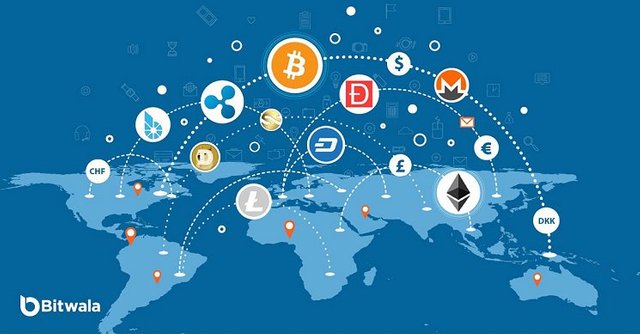

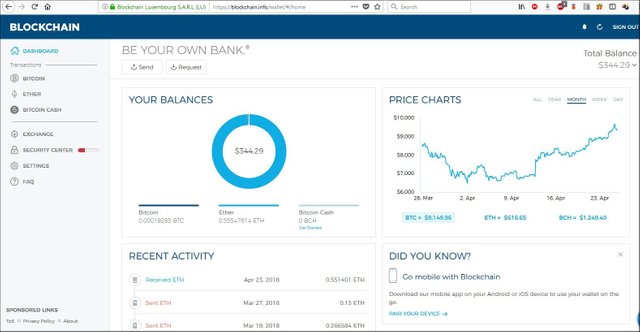
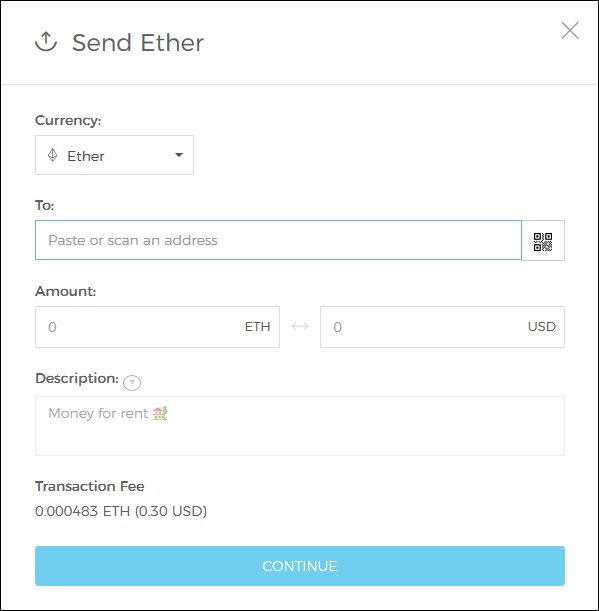
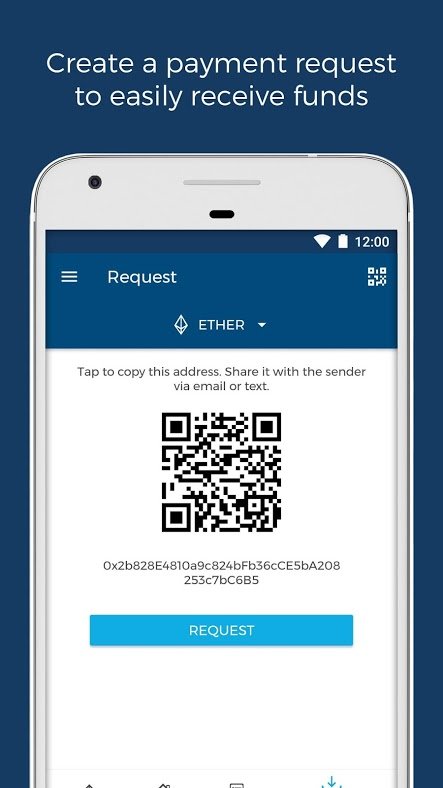
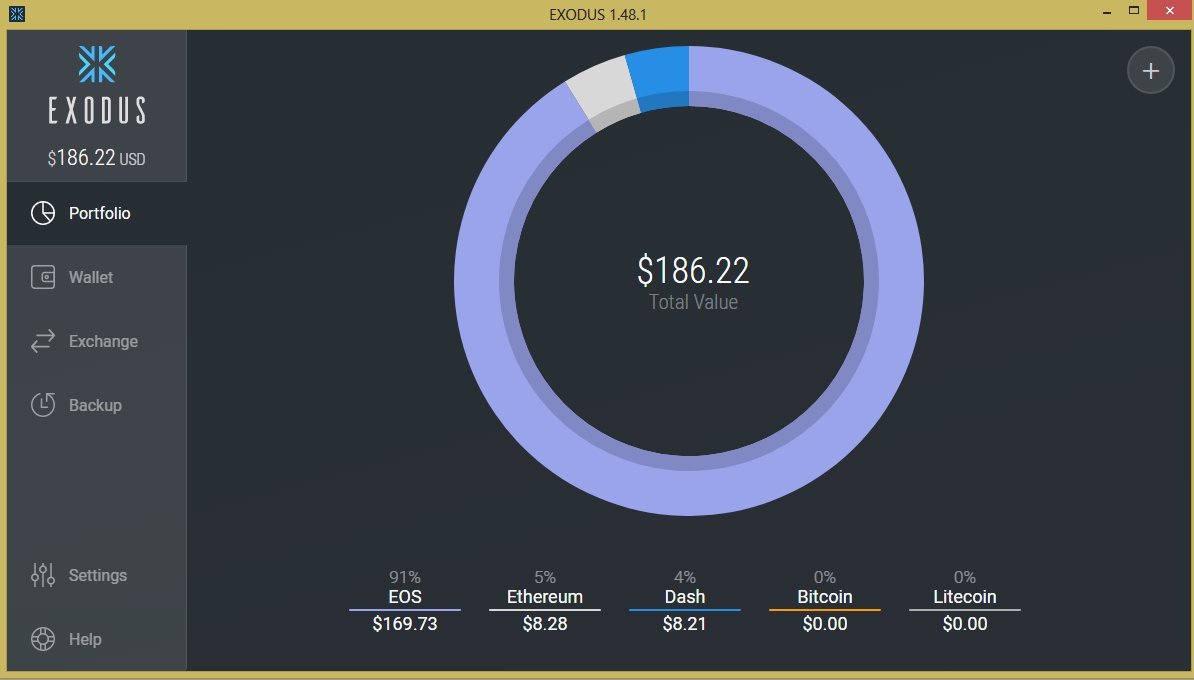
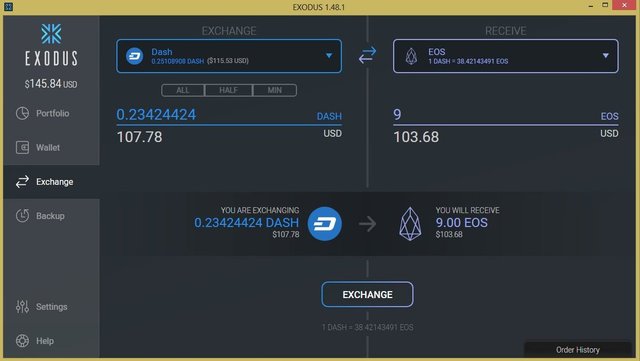
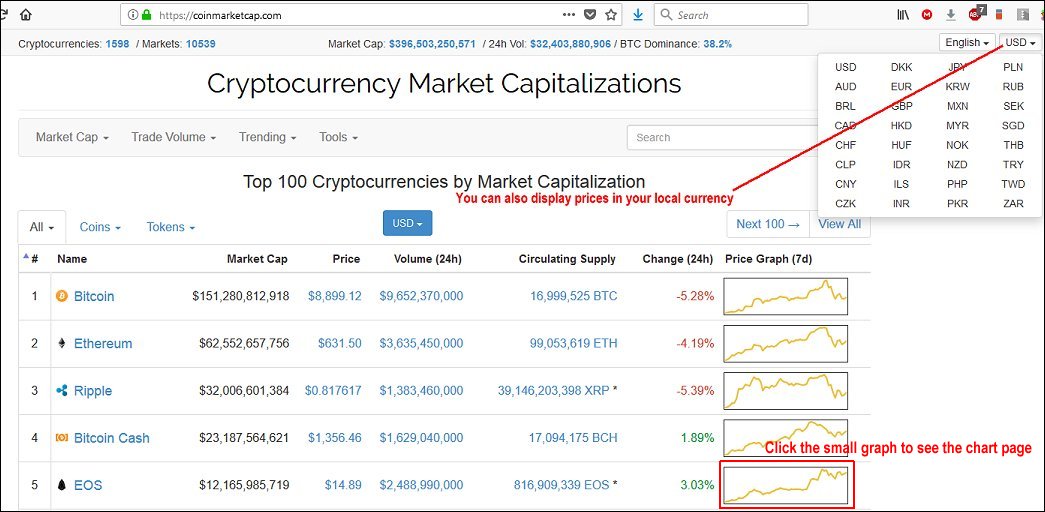
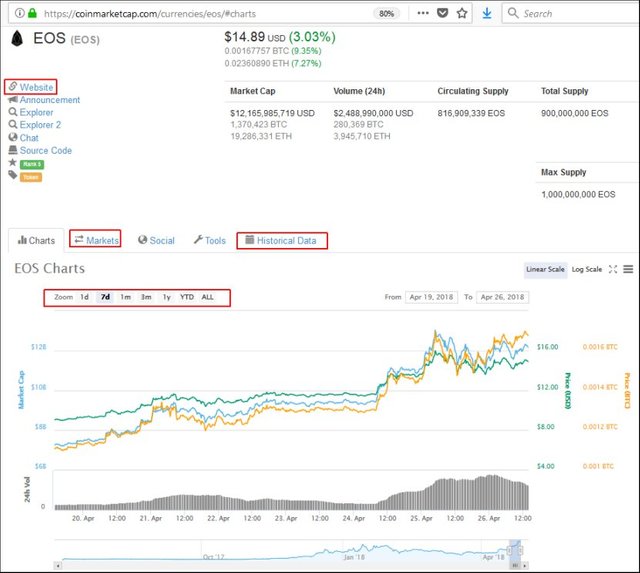
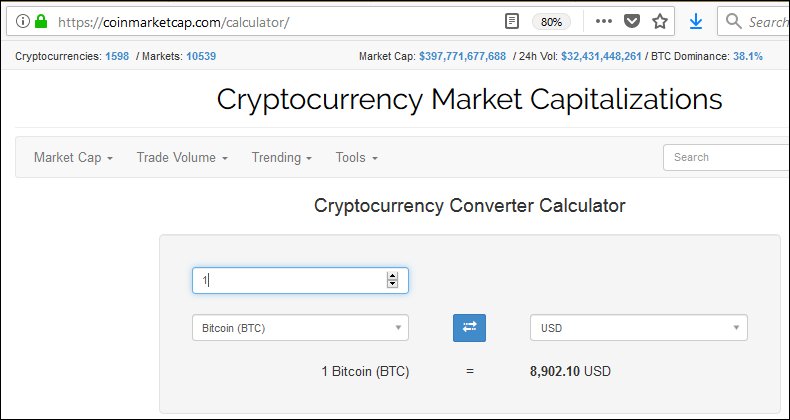
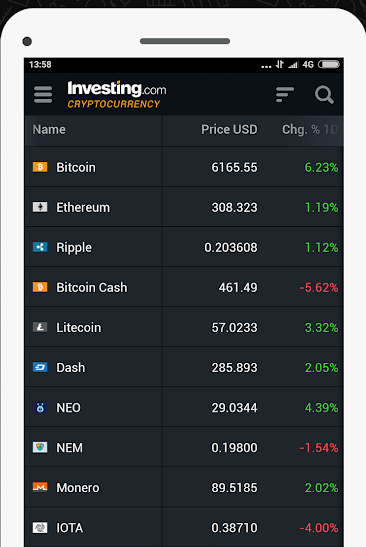
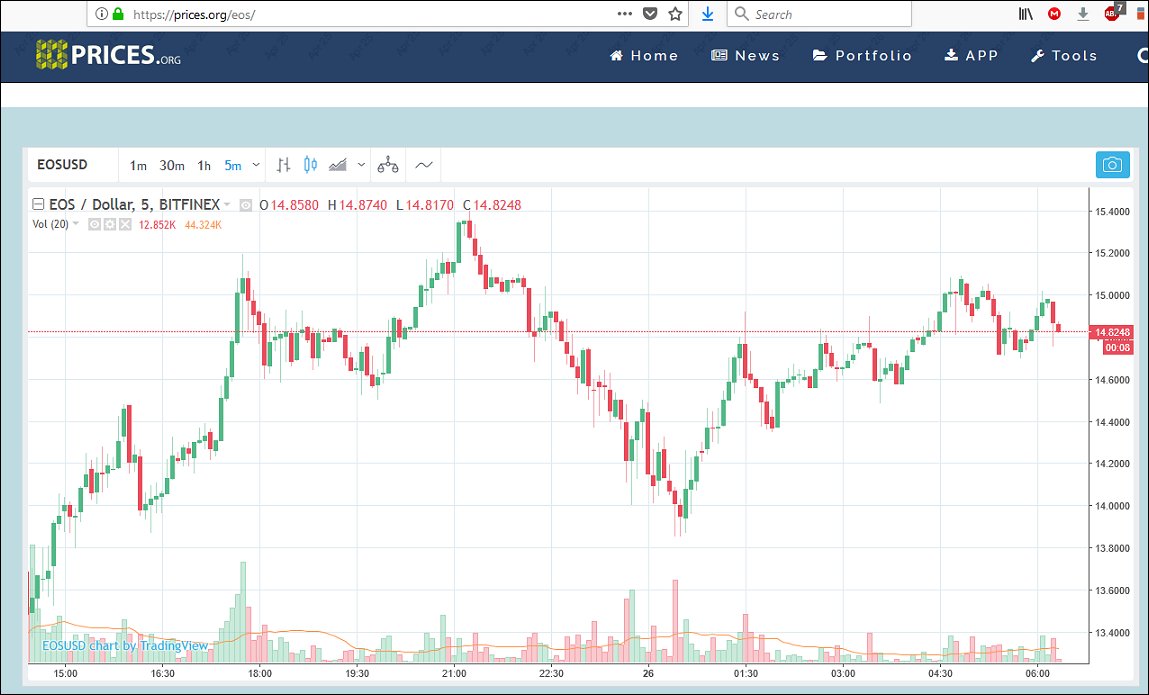
A well laid out synopisis of the cryptocurrency realm Dan. I recommend also starting a Twitter page to distribute your well researched and presented material as it truly does help expand ones audience. It helped me. It took about a year to get a lot of views that way but it does help hugely. Kind regards, Chris
Thank you so much Christopher. I just want to get more eyeballs on it. Do you happen to know if Steemit is experiencing a bug since I can no longer see the number of views on my posts (there use to be a little "eye" icon next to the footer where we see "Reply", "Edit", "Dialogue comment icon", and # of comments. This is really ashamed since we can no longer see the number of views and hence have no idea about our impact on things. Thanks again! P.S.: for the next week I won't be able to post on Steemit as I am traveling and can't access it to post (only view).
I noticed that too and have yet to see anyone discussing it. Definitely odd. I'll check around to see if I can find out more about it as I would also like to know how many people are viewing the posts. Have a cool trip and enjoy the break. :)
Thank you for the post, the only thing I would add is that you cover hardware wallets as those are the most secure although one can certainly lose theirs. Cheers
Always a surprise to see someone comment on a post over a month old isn't it? But you found one of my posts so I came over here to check things out and found this. Cripes! You could have made 3 posts out of this. I think the information is good so I'm going to resteem. Of course I noticed you are also a champion of freedom so plan on following too. Would love to attend Anarchopulco. Probably got the spelling on that wrong. To tell the truth I was hoping Steemit would provide an excellent income opportunity... and maybe it will but... well, seems to be a challenging thing to accomplish. However, willing to stick with it. Illness destroyed any retirement income I had and forced me into retirement so have to develop an additional income. Steemit? Yeah, that would be good. Blessings.